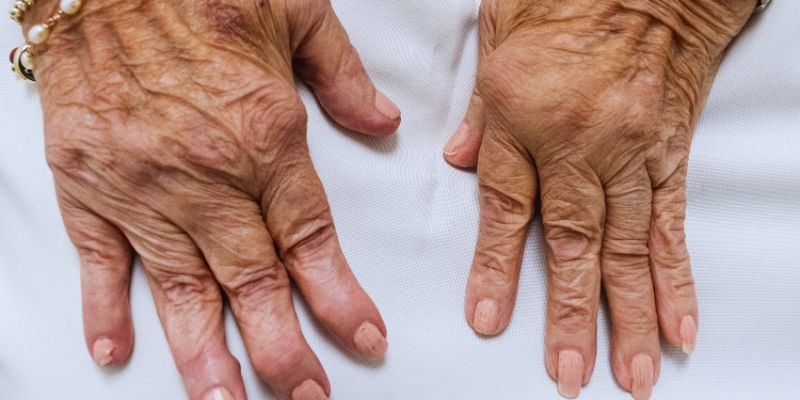How to Feel Better About Yourself When Struggling with Depression
Advertisement
Every day, depression can make one feel overwhelmed and disconnected from others. Little, doable techniques for relieving depression might inspire hope. With attentive actions, one can overcome depression using self-care. Simple routines, good ideas, and competent help will help you across shadows. Developing self-esteem during depression calls for patience and self-love, as well as consistent self-care routines.
Proper sleep, a balanced diet, and exercise help inner strength and healing. You have the right to care, compassion, and the chance to rediscover happiness. Every conscious habit and small move creates a road for consistent emotional recovery. Hope blossoms when you regularly tend to your fragile inner self with compassion and care. Your path is unique and deserves all effort to recover your brilliant life.

Understanding Depression and Its Impact on Self-Worth
The severe mental illness known as depression profoundly influences general self-worth, thoughts, and feelings. It sometimes produces a black shade that warms reality and reduces the intrinsic value of a person. Negative, persistent thoughts constantly feed deep self-doubt under terrible bouts of overwhelming depression and despair. Many times, feelings of worthlessness surface and undermine the confidence needed daily to follow aspirations. Many fight silently while their inner conflict creates profoundly felt scars on their self-esteem.
Realizing skewed self-perceptions and finding appropriate treatment with expert support depends on an awareness of depression. Friends and relatives could find it difficult to understand the weight of internal emotional loads beyond their capacity. Understanding depression releases stigma and creates paths for true healing, leading to long-term recovery. Step by little, practice, patience, therapy, and loving self-care routines gradually help one rebuild their self-worth. Knowledge of depression helps people to take control and recover their inner value with fresh hope.
Implementing Daily Self-Care Routines for Improvement
Managing depression and building consistent inner emotional strength depends on daily self-care routines. Simple routines like morning walks and nutritious breakfasts create a good basis for newly acquired hope. Starting tiny, reasonable daily tasks to motivate slow improvement helps one overcome depression with self-care. Regular writing offers clarity and honest evaluation, which helps one track both success and setbacks. Daily stress can be reduced, and creative interests can improve mental health, bringing delight. Making time for meditation helps one become calm and sharpen one's attention under trying circumstances.
Recovery depends on a regular sleep routine, which also helps to increase general emotional equilibrium every night. For vitality, drinking, and nutritious meals help brain function and energy levels all day. Monitoring self-care practices helps one develop confidence and inspire dedication to continuous mental wellness with observable outcomes. Daily self-care practices help raise mood and encourage continuous personal development for better living.
The Role of Professional Help in Recovery:
For those struggling with depression and mental pain, professional assistance provides direction and organization. Through regimented sessions, therapists use evidence-based techniques to help people understand and control their emotions. Self-care alone helps one overcome depression, but professional therapeutic support for recovery makes this more successful. Counseling sessions offer a secure environment to explore intense emotions and personal difficulties sympathetically. Group therapy allows shared experiences that help to lower loneliness and promote a feeling of belonging.
When taken as directed, medication can enhance therapy by stabilizing mood and reducing severe depressed symptoms. Regular visits let experts track development and change treatments as necessary for the best care. In therapy, private environments support honest conversations about difficult past events that promote significant healing. Expert advice encourages self-examination and creates fresh coping strategies for long-term rehabilitation under cautious direction. Seeking treatment shows strength and provides the path to better mental health and happiness.
Changing Your Way of Life to Improve Mood
Increasing mood and daily energy depends much on adopting good lifestyle modifications. Frequent physical activity generates endorphins, boosting mood and lowering stress for better vitality. A balanced diet encourages the best brain performance for recuperation. Emotional control and general mental clarity are free from disturbance and depend on regular sleep every night. Reducing drink and caffeine intake will help to enhance sleep patterns and lower anxiety, which will benefit greatly.
Social contact with loved ones offers encouragement and helps reduce isolation with warmth. Yoga and tai chi are mindful activities that notably increase mental resilience and physical power. Establishing reasonable personal goals helps one to succeed and gives life a consistent direction. Daily activities, including self-care, help boost confidence and encourage continuous good living choices for success. Changing your lifestyle can help you to improve your general well-being and shift your mood confidently.
Developing Mindfulness Practices for Emotional Balance
Mindfulness techniques help you to be present and gently release strongly unpleasant ideas. Frequent meditation helps the mind see emotions free from harsh judgment for inner peace. Deep breathing techniques gently relax the nervous system and rapidly, with caution, lower anxiety symptoms. Mindfulness helps one to welcome current events without clinging to old mistakes and seize new chances. Establishing a quiet area at home encourages consistent awareness and emotional comfort-oriented healing.
Through consistent daily practice, mindfulness naturally increases self-compassion, enhances focus, and lowers stress. Honest reflection and careful journaling help one process emotions and track toward healing. Mindful walks in the natural world help you rediscover beauty and encourage inner peace for a fresh spirit. Daily mindfulness exercises help you build resilience and equip you to utilize targeted intention to meet the demands of life. Building mindfulness practices lays the groundwork for consistent practice-based emotional balance and healing.

Conclusion:
Feeling better about oneself when depressed calls for tenacity, compassion, and steady adoption of slow recovery phases. Daily, with deliberate effort, incorporate doable tactics for depression relief and increasing self-esteem. Daily self-care, exercise, and mindfulness techniques help you move to emotional healing for permanent transformation. Professional advice and loving support help you far more effectively overcome depression using self-care. Your particular path merits compassion, tenacity, and useful depression-relieving techniques. Every day presents a chance to reconstruct self-esteem and find your brilliant life.
Advertisement












